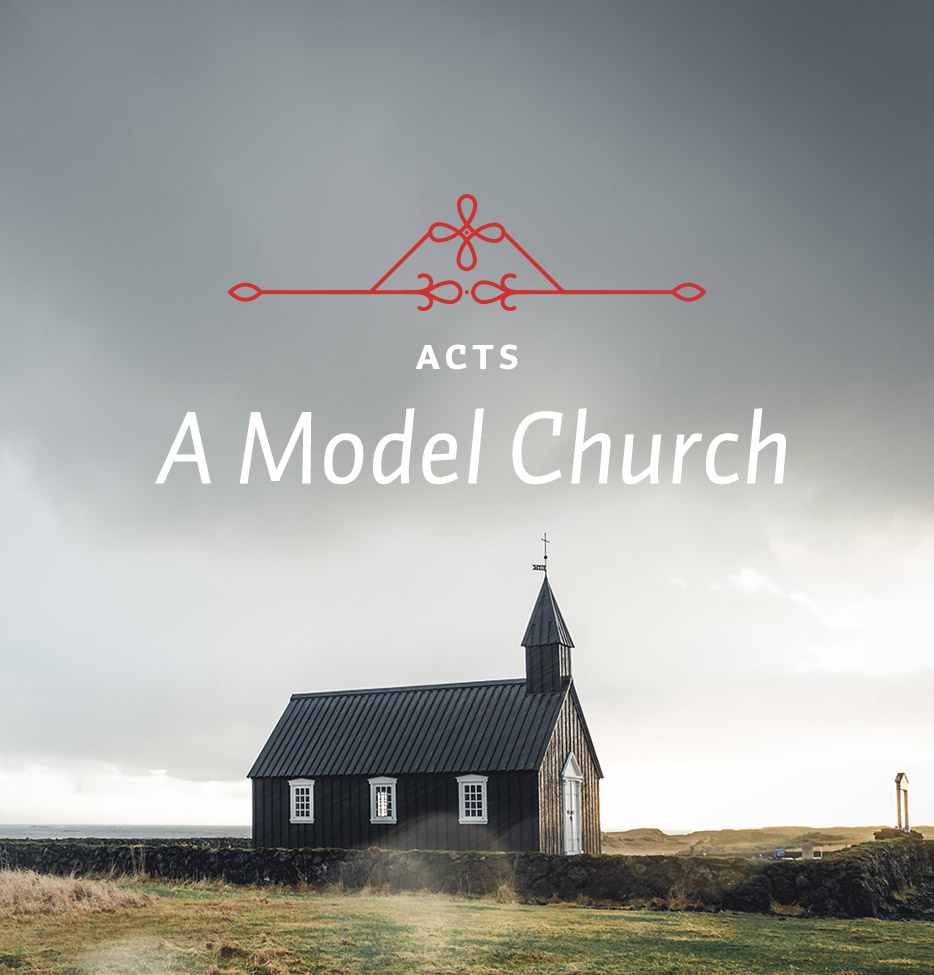Acts 2:42-47 describes the early church. It is presented as a model church, but this does not mean that it was perfect. A few chapters further on, we are going to find that it was far from perfect. It had hypocrites in it, as our churches also have. It had doctrinal errors. It certainly had sinful human beings of all types, as our churches do. Yet it was a model in many important respects, and it is as such that it is described in Acts 2. These verses tell what developed in the church and how it functioned in those remarkable days after Pentecost. Obviously this description is intended as an example for us and our assemblies.
There are some interesting things that we can notice that do not grow out of the text explicitly but which are perfectly obvious once we stop to notice them. They give us a useful context in which to begin thinking about this early fellowship of believers. First, this was an inner-city church. Second, it was a large church. Third, it had a multiple staff ministry. It needed the latter because of the 3,000 people who were added to the church at Pentecost, making the total number of believers 3,120 (the 120 of chapter 1 plus the additional 3,000). It began with the twelve apostles. But when the twelve found that there still were not quite enough people to do the work, they asked the church to elect seven deacons. So they had nineteen officers at that time. And the success of the church, as we soon discover, was that all of the believers (and not just these nineteen) were doing the work of the ministry (see Eph. 4:11-13).
In this chapter we need to look at some of the things that are said about this model church. The key verse is verse 42: “They devoted themselves to the apostles’ teaching and to the fellowship, to the breaking of bread and to prayer.”
The first phrase says that they devoted themselves to “the apostles’ teaching.” In other words, this was a learning, studying church. There were a lot of other things Luke could have said about it. As we go on, we find that it was a joyful church, and also an expanding, vibrant church. These are important items. Nevertheless, the first thing Luke talks about is the teaching. He stresses that in these early days, in spite of an experience as great as that of Pentecost, which might have caused them to focus on their experiences, the disciples devoted themselves first to teaching.
It could have been a temptation for the early believers to look back to Pentecost and try thereafter always to focus on the past. They might have remembered the way the Holy Spirit came and how He used them to speak so that those in Jerusalem each heard them in his or her own language. They might have longed to experience something like that again. They might have been praying, “Please, Lord, do something miraculous again.” This is not what we find. They are not reveling in their past experiences. Instead, we find them reveling in the Word of God.
I suggest that this is always the first mark of a Spirit-filled church. A Spirit-filled church always studies the apostolic teaching. It is a learning church that grounds its experiences in and tests those experiences by the Word of God.
It is also interesting that the object of their study was the apostolic teaching. The apostles were people specifically chosen by Jesus Christ to remember, teach about, and authentically record the events and meaning of His ministry. The importance of this office is seen in the way the apostles went about choosing a replacement for Judas, who had betrayed Christ and then committed suicide. Peter led the way. He said that the replacement had to be, first, a person who was present with the Lord from the earliest days, who knew about His ministry and was a witness of the resurrection. Then second, he also had to be one whom the Lord specifically appointed to the apostolic office. Many people had witnessed the events of Christ’s ministry, but the Lord did not choose all of them. He chose a certain number. And he chose those to remember and record an official, Spirit-inspired compendium of His teaching. Jesus said in the last discourses, recorded in John’s Gospel, that after He was gone He would send the Spirit to bring to their remembrance all that He had taught.
If somebody says, “But how do we know that these particular men were the true apostles of Christ and spoke with his authority?” the answer is by the “wonders and miraculous signs” mentioned in verse 43. “Everyone was filled with awe, and many wonders and miraculous signs were done by the apostles.” I do not think we need to conclude that the wonders and signs were done by the apostles alone and by no one else. Others may have been the agents of miraculous occurrences, too. But what the text does say is that miracles were done by the apostles, and the reason they were done by the apostles (this is said explicitly) is that it authenticated them as Christ’s messengers and as bearers of the true Spirit-given teaching.






